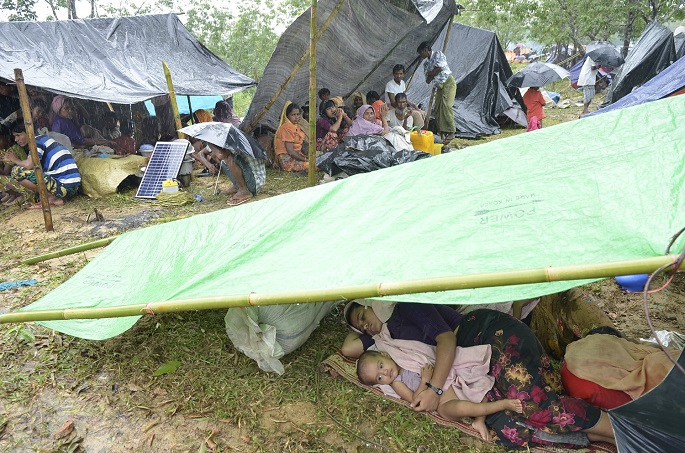Rohingya refugees need protection as cyclone season nears: IFRC
Published : 18 Feb 2019, 23:24
An estimated 574,000 people in camps close to Bangladesh's Cox's Bazar face the coming cyclone seasons with only rotting bamboo and shredding plastic to protect them, the International Federation of Red Cross and Red Crescent Societies (IFRC) warned here Monday.
IFRC said in a statement that a survey found that that 82 percent of the 700,000 people in sprawling camps there urgently need sturdier shelters to protect them from extreme temperatures, monsoon downpours and two cyclone seasons a year.
"Housing conditions in these camps are basic. However, after 18 months, they have dramatically deteriorated, leaving people worryingly exposed," Azmat Ulla, head of the IFRC country office in Bangladesh, said.
It is almost exactly 18 months since August of 2017, when violence erupted in Rakhine state in Myanmar, forcing people to flee.
"The aid community in Cox's Bazar needs to prioritize repairing and replacing these battered shelters, so that people have some protection against the elements, and are provided with at least some basic comfort and dignity," Ulla added.
In recent weeks, IFRC said, Red Crescent staff and volunteers have distributed tarpaulins, ropes and tools to 49,000 families, benefiting 200,000 people.
"In the past 18 months, the Bangladesh Red Crescent, supported by IFRC and Red Cross and Red Crescent partners from around the world, has reached over 250,000 people with emergency help including food, water and shelter equipment", IFRC said, adding that more than 160,000 have received Red Cross and Red Crescent medical care.
Last week, various UN agencies and their partner NGOs launched the 2019 Joint Response Plan for the Rohingya humanitarian crisis, which is aiming to raise 920 million U.S. dollars to help more than 1.2 million people.


